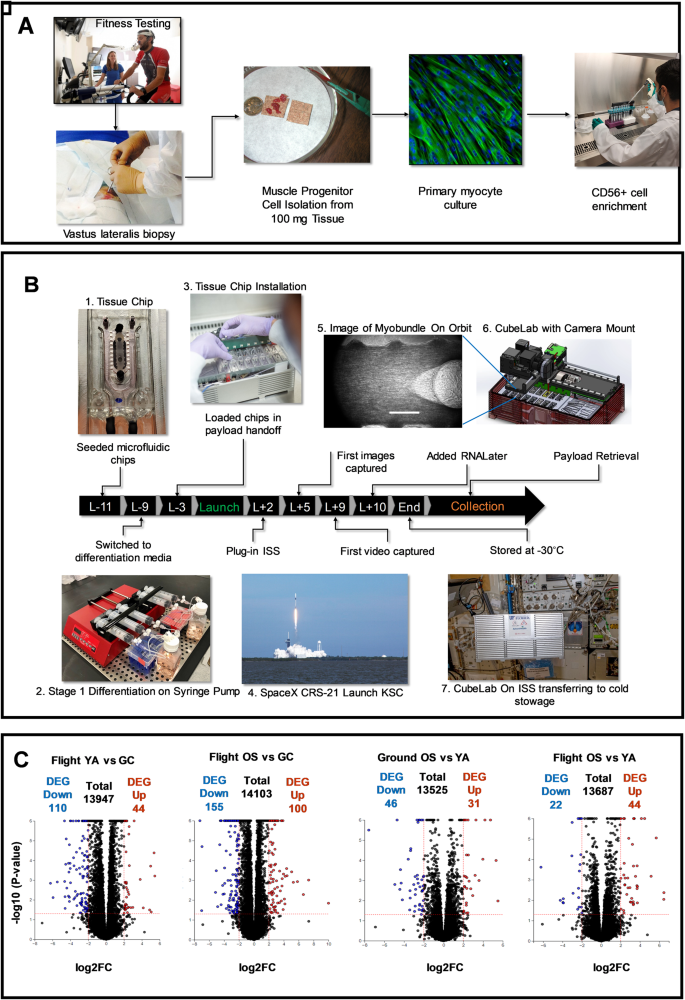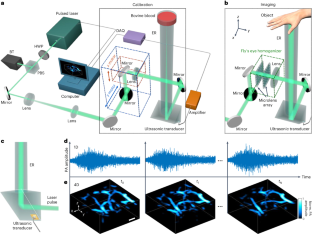2023-12-01 NASA
◆宇宙ステーションでは地球の運動を模倣する運動プログラムが採用され、特に2時間以上の運動は課題となっています。将来の月や火星ミッションに向けて、宇宙での骨と筋肉の萎縮への対策や治療法が検討され、これは地球上の骨粗しょう症や年齢による問題にも関連しています。
<関連情報>
- https://www.nasa.gov/missions/station/iss-research/counteracting-bone-and-muscle-loss-in-microgravity/
- https://www.nature.com/articles/s41526-023-00322-y
ヒト骨格筋組織チップの自律型ペイロードにより、宇宙飛行による繊維タイプと代謝遺伝子発現の変化が明らかになった。 Human skeletal muscle tissue chip autonomous payload reveals changes in fiber type and metabolic gene expression due to spaceflight
Maddalena Parafati,Shelby Giza,Tushar S. Shenoy,Jorge A. Mojica-Santiago,Meghan Hopf,Legrand K. Malany,Don Platt,Isabel Moore,Zachary A. Jacobs,Paul Kuehl,Jason Rexroat,Gentry Barnett,Christine E. Schmidt,William T. McLamb,Twyman Clements,Paul M. Coen & Siobhan Malany
npj Microgravity Published:15 September 2023
DOI:https://doi.org/10.1038/s41526-023-00322-y

Abstract
Microphysiological systems provide the opportunity to model accelerated changes at the human tissue level in the extreme space environment. Spaceflight-induced muscle atrophy experienced by astronauts shares similar physiological changes to muscle wasting in older adults, known as sarcopenia. These shared attributes provide a rationale for investigating molecular changes in muscle cells exposed to spaceflight that may mimic the underlying pathophysiology of sarcopenia. We report the results from three-dimensional myobundles derived from muscle biopsies from young and older adults, integrated into an autonomous CubeLab™, and flown to the International Space Station (ISS) aboard SpaceX CRS-21 as part of the NIH/NASA funded Tissue Chips in Space program. Global transcriptomic RNA-Seq analyses comparing the myobundles in space and on the ground revealed downregulation of shared transcripts related to myoblast proliferation and muscle differentiation. The analyses also revealed downregulated differentially expressed gene pathways related to muscle metabolism unique to myobundles derived from the older cohort exposed to the space environment compared to ground controls. Gene classes related to inflammatory pathways were downregulated in flight samples cultured from the younger cohort compared to ground controls. Our muscle tissue chip platform provides an approach to studying the cell autonomous effects of spaceflight on muscle cell biology that may not be appreciated on the whole organ or organism level and sets the stage for continued data collection from muscle tissue chip experimentation in microgravity. We also report on the challenges and opportunities for conducting autonomous tissue-on-chip CubeLabTM payloads on the ISS.


